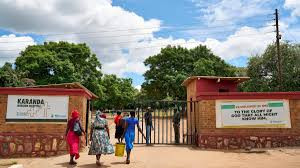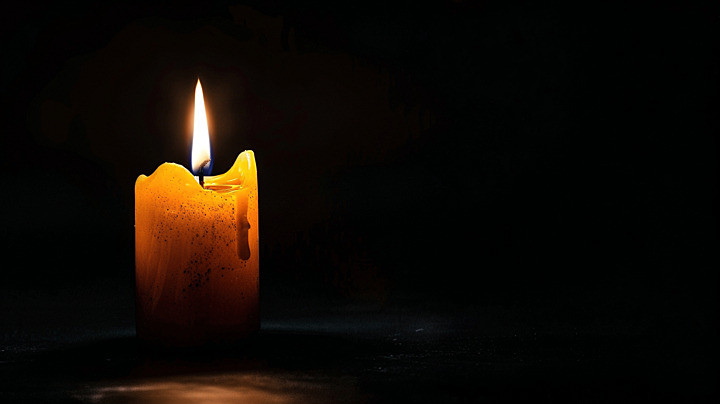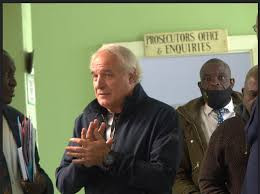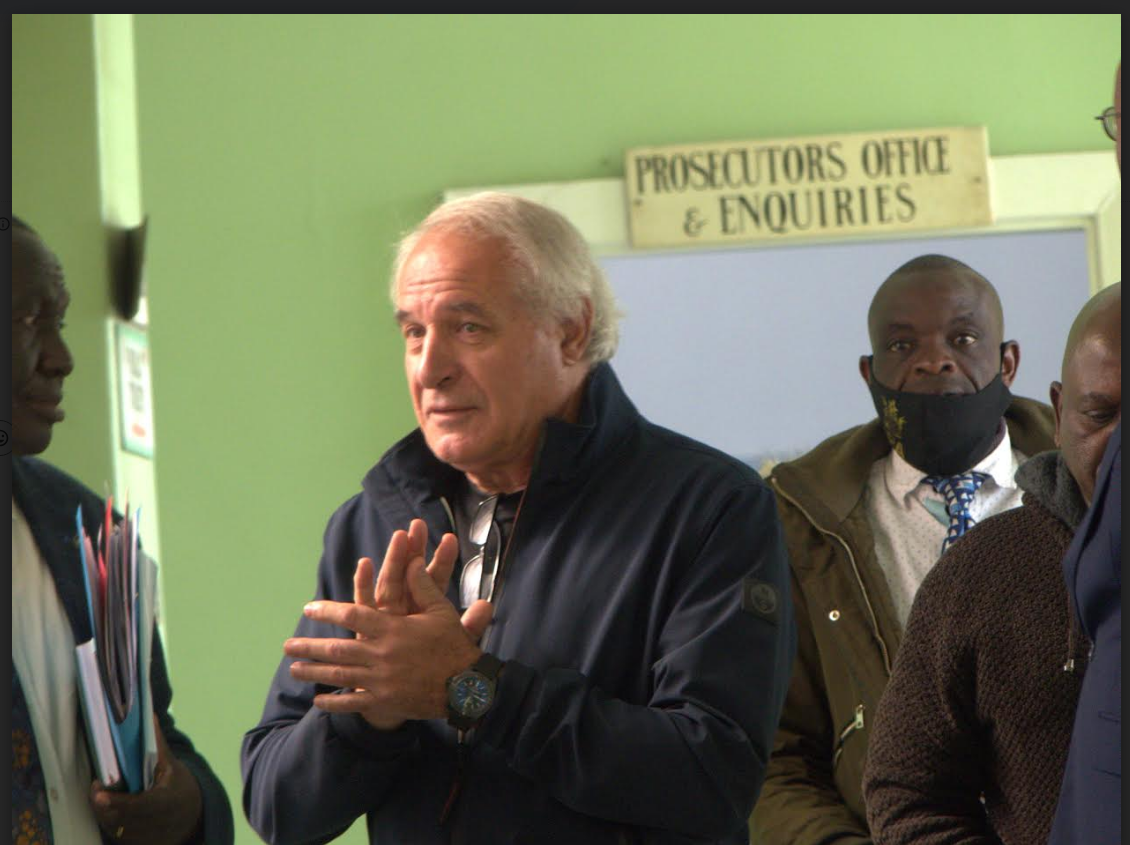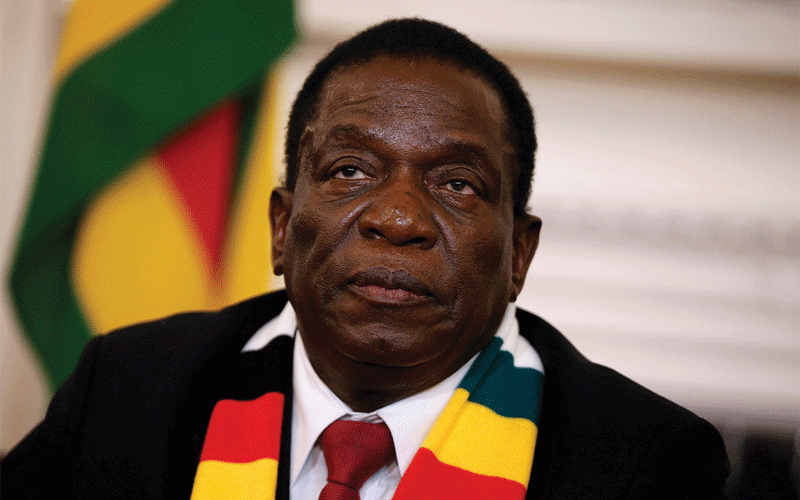
THE Criminal Law (Codification and Reform) Act, commonly known as the Patriotic Act, must be repealed in its entirety in line with a High Court ruling declaring some of its key provisions as unconstitutional, observers said.
President Emmerson Mnangagwa signed the Patriotic Bill which deals with “wilfully injuring the sovereignty and national interest of Zimbabwe”in July 2023 despite strident opposition from domestic and international human rights defenders.
The law provides for such severe penalties as 20 years in jail and revocation of citizenship for those charged with damaging the country’s interests.
It also stipulates the execution of any person found to have advocated for international sanctions which harm the country or its people.
The law was widely condemned by human rights groups including the United Nations High Commissioner for Human Rights, but sailed through the Zanu PF-dominated National Assembly and Senate, paving way for Mnangagwa to append his signature.
High Court judge Justice Roger's Manyangadze last week ruled that some provisions of the law were unconstitutional.
Manyangadze made the ruling after the Media Alliance of Zimbabwe (MAZ) and journalist Zenzele Ndebele filed a joint application challenging the constitutionality of the law.
MAZ and Ndebele had cited Justice legal and Parliamentary Affairs Ziyambi Ziyambi minister and attorney general, Virginia Mabhiza, as respondents.
- Village Rhapsody: Zimbabwe needs to reduce teen pregnancies
- NoViolet Bulawayo’s new novel is an instant Zimbabwean classic
- COP27: Zimbabwe’s opportunity to shine
- Jah Prayzah, Zanu PF rekindles ‘lost love’
Keep Reading
They argued that section 22A (3) of the Act was vague, and infringed on section 61, 58, 67, 39, and 20 of the constitution.
The sections guarantee every right to freedom of expression, association and assembly, right to vote, and stand for political office as well as provides grounds for which citizenship may be revoked.
The applicants sought a declaration of constitutional invalidity of section 22A, and impugnment of terms such as "agents, proxies or entities" of the foreign government.
They submitted that "subverting, upsetting, overthrowing or overturning the constitutional government in Zimbabwe” was also not defined with sufficient clarity and therefore unconstitutional.
The argued that section 22 A (2) was broadly worded, and as such has high potential for abuse and misuse and was meant to silence dissenting voices.
They further argued that section 22 A (3) is equally and unreasonable in a democratic society.
Human Rights Watch (HRW) senior researcher, Idriss Nassah, said the law was repressive and should be annulled following the latest High Court ruling.
“While striking down sections of the law as unconstitutional is a positive step, the Zimbabwe government should repeal the draconian Patriotic Act altogether, as it contains overly broad and vaguely defined provisions, such as those criminalising participation in meetings “with the intention of promoting calls for economic sanctions against the country,” Nassah said in a report welcoming the High Court ruling.
“Such provisions amount to serious violations of the fundamental human rights to freedom of expression, peaceful assembly, and association protected under international human rights law.”
MAZ coordinator, Nigel Nyamutumbu, said the provisions of the Act were not only ambiguously framed, but sought to dictate who and how citizens interact with foreign nationals.
He said the provisions impacted on news sourcing from a journalism and media perspective and entrenched a culture of censorship.
“To that extent, the ruling is landmark as it regalvanises our advocacy interventions for the respect and implementation of constitutionally guaranteed rights,” Nayamutumbu said.
“We celebrate the ruling fully cognisant that this is merely an incremental step towards advancing freedom of expression and we still have a tumultuous journey ahead.”
“Our resolve in the pursuit of democracy is anchored in the philosophy that a thriving and economically viable society can be realised if there is a conducive environment for the enjoyment of freedom of expression and media freedom. “
Zimbabwe National Editors Forum coordinator, Njabulo Ncube, said the High Court ruling was a “small” victory for the Zimbabwe media in the practice of journalism.
“It's an incremental gain although we would have wanted all the provisions of the Patriotic Act declared unconstitutional,” Ncube said.
“To all intents and purposes, this is a bad law which criminalises the practice of journalism in Zimbabwe.
“The president should not have ascented to this bad piece of legislation. It should be annulled.”
Mlondolozi Ndlovu, a human rights advocate, said the law provides a new impetus for Zimbabweans to fight for their rights as enshrined in the constitution.
“It provides new energy to continue fighting against laws that may be seen as undemocratic,” he said.
“I think it shows that citizens must continue to demand their rights and show that the constitution and the Supreme Court law of the land must guarantee the protection and promotion of human rights of the people of Zimbabwe.”
Human rights lawyer, Godfrey Nyoni, said there was need to have the Constitutional Court to confirm the High Court ruling so that the law is struck down from the country’s statutes.
“It's a positive judgement in the sense that at least there is an acknowledgement on the part of the government, or rather by the court, that this piece of legislation carried a bit of some unconstitutional provisions in so far as section 22A.3,” Nyoni said.
“So after an order is granted by the High Court declaring a provision of any act of Parliament or piece of legislation unconstitutional, the next step is that the ruling has to be sent to the Constitutional Court for confirmation of that invalidity.
“The Constitutional Court will be free to either agree with the judge and say, indeed, this particular section 22A3 is unconstitutional.
“Or the constitutional court can say, no, we don't agree with the judge and set aside the ruling of the judge.”
Opposition and human rights groups have been calling on Mnangagwa to repeal the Act, arguing that the new law is evidence that Zimbabwean authorities are bent on closing civic space as well as suppressing all forms of dissent.
Zanu PF activists have defended the law as necessary to punish citizens bent on pushing a regime change agenda with the West.
United States-based opposition activist Freeman Chari, had also challenged the constitutionality of the law.
Chari took offence with section 22A (2)(b) of the Act and argued that it is unconstitutionally vague and, therefore, void.
He argued that the words subverting, upsetting, overthrowing or overturning the constitutional government are not defined with sufficient clarity, rendering the whole Act vague.
Chari said the law violated his political rights guaranteed in section 67 to overthrow a constitutional government through constitutional means.
He also argued that some provisions of the Act violate his right to freedom of expression and freedom of the media and political rights as enshrined in terms of section 61 and 67 of the constitution.
The government, opposed Chari’s application with attorney general, Prince Machaya, saying there was nothing wrong with the law.
“What applicant takes issue with is that all words which establish the offence, namely, "subverting, upsetting, overthrowing or overturning" the constitutional government in Zimbabwe have not been defined,” Machaya submitted in court.
“I aver that this is not always necessary for the legislature to do at all times.
“ Where a definition has not been provided, the tenets of interpretation require that one looks at the ordinary meaning of the words in question in relation to the crime sought to be established.”
Machaya said the law does not criminalise criticising the governemnt as alleged by Chari.
“Criticizing or challenging a government is not what is prohibited under the impugned section; otherwise the legislature would have used words like "criticise" or "challenge" etc,” he said.
“The kind of behaviour that is criminalised under section 22 A (20 (b) goes beyond the normally accepted methods of removing or changing a constitutional government.”
Machaya added: “Section 22 (2) (b) of the Criminal Code is very clear and precise and does not in any way violate political rights and the right to freedom of expression and freedom of the media as encapsulated under section 61 and 67 of the constitution.”

